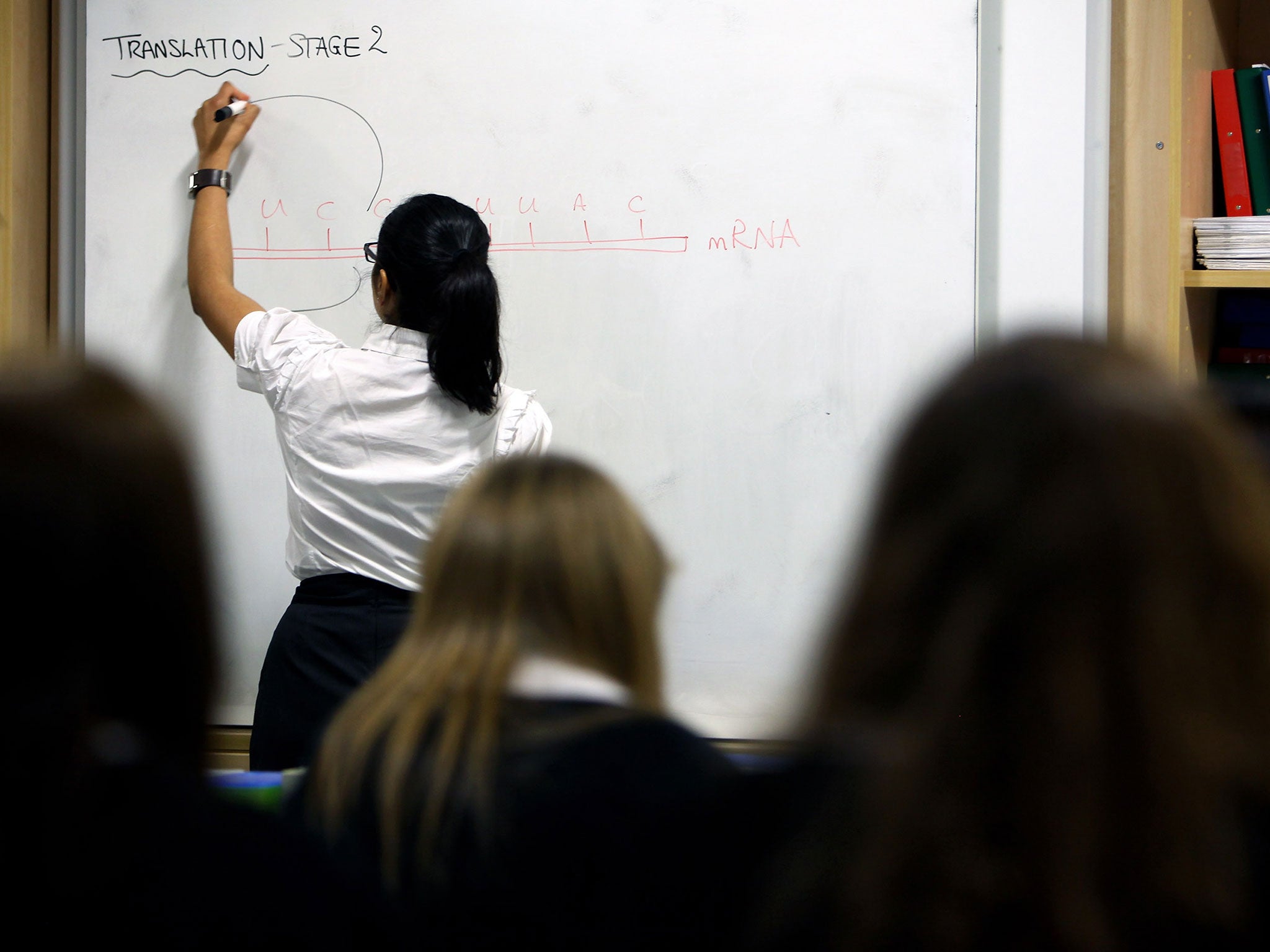Children in northern England being hit by 'double whammy' of poverty and failing schools, warns report
Children's Commissioner warns that benefits from Northern Powerhouse programme are not trickling down

The lives of children growing up in northern England are being damaged by a “double whammy” of poverty and poor schools, according to a report warning of a widening regional gap.
The Children’s Commissioner for England found that northern children are missing targets at school, dropping out early and facing poor prospects.
A child from a low income family in London is three times more likely to go to university than in Hartlepool, according to the report, while the number of 16- to 18-year-olds not in education, employment or training in areas including Middlesbrough, Manchester and Blackpool is double the national average.
Anne Longfield, the Children’s Commissioner for England, said many of the most disadvantaged children in the north are falling far behind their peers in the south.
“They are less likely to do well in secondary school, more likely to go to a poor school and more likely to leave education early,” she added. “While some parts of the north have some of the best primary schools in the country, many secondary schools are struggling.”
The report found “huge gaps” between life prospects across the country, warning: “Too many children in the north are facing the double whammy of entrenched deprivation and poor schools. They are being left behind.”
Ms Longfield said children from wealthy families enjoy relative success wherever they live but disadvantaged youngsters are affected by low expectations in communities with narrow job prospects.
“Every one of the 3.6 million children growing up in the north should have the brightest future possible and best opportunities to look forward to happy, healthy and prosperous lives,” she added. “Where they live and grow up should not be a barrier to making the most of their lives.”
The report warned that benefits of the coalition government’s Northern Powerhouse project were not filtering down and called on children to be given the same attention as economic regeneration, business links and transport.
“They’ve done up the main thing to make it look nice, rather than getting things done that will actually benefit us,” said one child interviewed in Northumberland.
Action for Children said northern children were getting a “raw deal” and called for investment.
“Being behind their peers in basic communication and social skills is a core disadvantage many will find difficult to overcome as they progress through school and into working life,” said the charity’s director of policy and campaigns, Imran Hussain.
“Without real investment in proven early help services, such as children’s centres, which help give children in areas of most need the best start in life, poor children will grow up to be poor adults.”
The north was defined as the Yorkshire and the Humber, North-west and North-east regions in the research.
Toddlers in the region are more likely to attend nursery than in London, but less likely to have reached development benchmarks by the time they reach school.
The gap then widens throughout education, with more than half of children from the most deprived areas attending schools below an Ofsted “good” rating, which are themselves struggling with weak leadership and difficulty recruiting staff.
The results are seen in exam results, making London children receiving free school meals 40 per cent more likely to get good GCSE results in Maths and English, half a grade higher in every subject, and two times more likely to go to university than their northern counterparts.
Legally, children are now required to be in education or training until they are 18 but high numbers of teenagers across the north are dropping out early.
A “significant minority” of young people surveyed had been exposed to crime first-hand, including gangs and drug-taking.
As well as the regional divide, the report exposed a gender gap in the north, where boys are “must more optimistic” about the opportunities open to them, despite girls outperforming them at school.
Researchers found the problem was particularly acute in areas where traditional industries have been male-dominated, and regeneration may also focus on other “male” employment.
The Children’s Commissioner called for every local area to have a dedicated plan making sure children are in apprenticeships, training or education until the age of 18, and bring regeneration and education together.
The report said funding reforms were needed to avoid unnecessary choices for struggling schools and suggested the creation of “Growing Up North Forums” to drive coordinated action between local authorities, education providers, employers, health bodies, the voluntary sector and police.
It came as the National Crime Agency warned that an increasing number of British teenagers were being referred for help as potential modern slaves after being exploited for sex or drug running by gangs.
A government spokesman said it was investing in schools in the north and in projects that improve pupils’ chances from an early age.
He added: “As the Children’s Commissioner notes, many children in the north are now thriving, but there is more to do.
“Our Northern Powerhouse programme includes £3.4bn investment in projects to boost the local economy, £12m to spread good teaching practice in English and improve early literacy, and schemes that help families to support their child’s education at home.”
Subscribe to Independent Premium to bookmark this article
Want to bookmark your favourite articles and stories to read or reference later? Start your Independent Premium subscription today.

Join our commenting forum
Join thought-provoking conversations, follow other Independent readers and see their replies